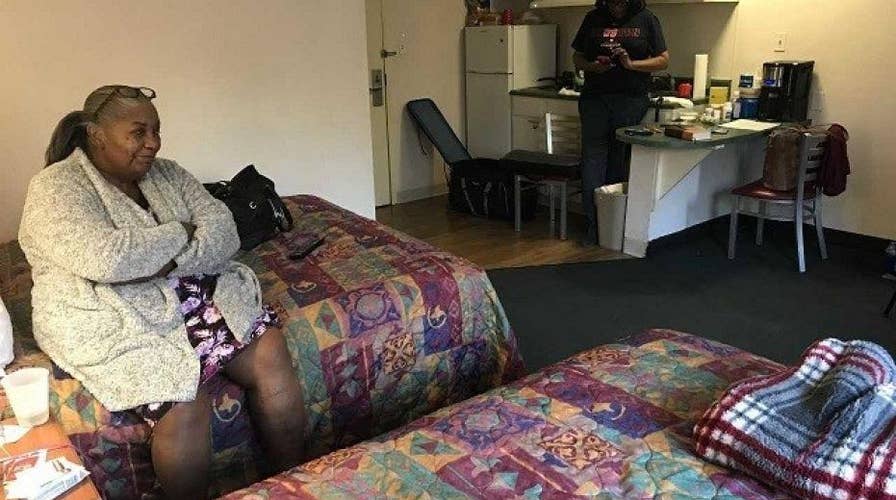No resolution on $81 billion disaster relief bill
Harvey victims wait for help as talks on disaster relief bill fall by the way side.
Houston resident Debra Williams says it’s been one month since she checked in at the Intown Suites, an extended-stay hotel.
She doesn’t know when she’ll leave.
Williams ‘ home was damaged during Hurricane Harvey in late August. Before checking in at Intown, she was staying at a friend's place.
“I had never been through that before,” she says.
She says she received $20,000 from the Federal Emergency Management Agency, FEMA, and used that money to make some home repairs. But she needs more funding to finish the work.
“Any money I get, don’t know if it’s federal money or city money or donated money, any kind of money, if I can get the money I need to make my house livable and accommodate me, I don’t care whose money it is,” she says.
A spokesperson from Houston Mayor Sylvester Turner’s office says about 4,300 people in the city still live in hotels. But for those who are on fixed incomes, time and money are running out.
“This place is costing me a fortune,” says Williams, who pays in excess of $300 a week to stay at Intown Suites.
Last month, the House passed an $81 billion disaster relief bill for Texas, Florida, Puerto Rico and other regions stricken by recent natural catastrophes. It would’ve been a third wave of federal aid. But the measure stalled in the Senate.
During a press conference about Harvey relief in Houston last week, Senator Ted Cruz, R-Texas, offered assurances that the bill “would get passed.”
But the question is when.
“The timing of it is still somewhat fluid," Cruz said. "My hope is that we take it up and pass disaster relief swiftly, cleanly, and independently. I want to keep disaster relief from getting bogged down in the many other policy fights that are going on in Washington."
As lawmakers try to figure out what to do with Deferred Action for Childhood Arrivals, or DACA, and work toward a deal to avert a government shutdown on Friday, talks on disaster relief have fallen by the wayside.
And as the days pass and the bills stack up, so do Williams’ pleas to return home.
“A new house is not what I’m after, I would just like to get back. … I want to live at home,” she says.





















